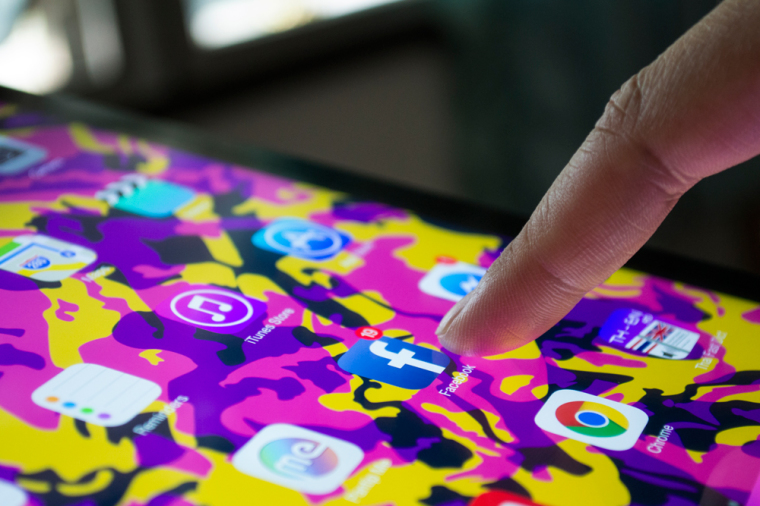
Much has been written about Facebook and the Christian. Most of what I have read though has mostly been written with a view towards developing an individual ethic, a kind of Facebook piety if you will, an important thing to discuss, no doubt.
However, I think more can be said about the phenomenon that is Facebook. Herein I wish to discuss these elements in Facebook in particular. Let me start by saying that in general I am a pessimist, I tend to think that all the things I grew up with were good, and all the new things are interpolations, always on trial for my affections.
I took far longer than most of my contemporaries to get a smart phone, I still use a hand written diary, I hate reading on screens, even kindles only just pass, and I don't like any form of coffee that removes my own hands from the creative process.
Sometimes I like to think I am being romantic, but mostly I am just training myself to go full troglodyte when I have children. With those confessions and potential biases out of the way, let me say this: I am not here to bash Facebook, I have an account, I share important things, trivial things, sometimes I share things just to get 'likes'.
I am as vain as the next person. But I think that some bigger societal and collective issues are being ignored, ironically I think, because of the very existence of Facebook itself.
What if ?
I once heard somebody say that if Jesus were to have arrived today instead of 2000 years ago, he would have turned up on Facebook. The argument is simple: a large percentage of the world has a Facebook account (it's about a 6th of the living world population) so Jesus would turn up on Facebook and then, I don't know, have regular status updates starting with 'you have seen it posted, but I say to you…'
The absurdity of such an idea, that Jesus would turn up on Facebook, represents I think one big failure of Christian imagination to consider what is happening behind the scenes, globally with Facebook, and in tandem, with Christianity. Jesus didn't turn up in Rome, he turned up in Bethlehem, Jesus didn't deliver his sermons to the whole world at the time, or even a significant minority. Instead, he said to the Samaritan woman: "You worship what you don't yet know".
It was important that Jesus turned up in Israel when he did because he was not working on our vision of influence, rather, he was considering the people who had become God's people, and how they would influence the rest of the world.
We too need to remember this; Facebook isn't necessarily our greatest opportunity to share the gospel. It doesn't democratise information any more than the printed book did. There is still 5/6ths of the world that will never see it, just as there are still a significant minority who couldn't read it anyway. This is not to say that Christians should abandon Facebook, I don't even want to make a moral or ethical point about Facebook, what I want to say is that the gospel is more important than the mediums used.
We have to remember that the mission Jesus gave his disciples was bigger than simply 'share the gospel, however, whenever' it was this: "Therefore go and make disciples of all nations, baptizing them in the name of the Father and of the Son and of the Holy Spirit, and teaching them to obey everything I have commanded you. And surely I am with you always, to the very end of the age." (Matthew 28:19-20)
This is a mission not able to be completed by Facebook, it will always ever be only supplementary.
Other considerations
Another consideration are the political and indeed, theological elements of participating in Facebook. Facebook 'activates' us in a way. Remember the 'KONY' campaign? Awareness is built into the system, it asks a lot more from us, it asks us to be in a way truly global citizens of this world, allowing no bit of news to go unshared, uncommented on.
In this sense it does democratise information (if not its proliferation). However, ultimately it has given rise to our new age of slacktivism, of pretending our body is doing something, when only the image of it is. In this way Facebook alters the way we imagine ourselves and our involvement in the world.
Whereas theologically the authors of the New Testament laboured over the importance of our presence towards each other, our being-togetherness that is a true reality spiritually, but needs to be enacted physically.
Therefore, both politically and theologically it's shifted our focus off of our bodies and onto our incorporeal selves, projected outwards in the internet, but by no means liberated, rather simply pushed and squished into acceptable channels of expression, it almost seems at the very moment where people's bodies are being liberated, their identity is being constrained and watched by the big brother of the internet.
In summary, I don't want you to read this thinking you should quit Facebook. Facebook is here to stay, most likely. We are not going to win any medals by a false asceticism, however, when we talk about Facebook, about social media and the Christian's ability to impact the world in this digital age, I think a healthy scepticism towards it should be adopted, a recognition that there is no straight analogy between our mission and Facebooks.
First published June 9, 2014

Dale Wang's previous articles may be viewed at www.pressserviceinternational.org/dale-wang.html